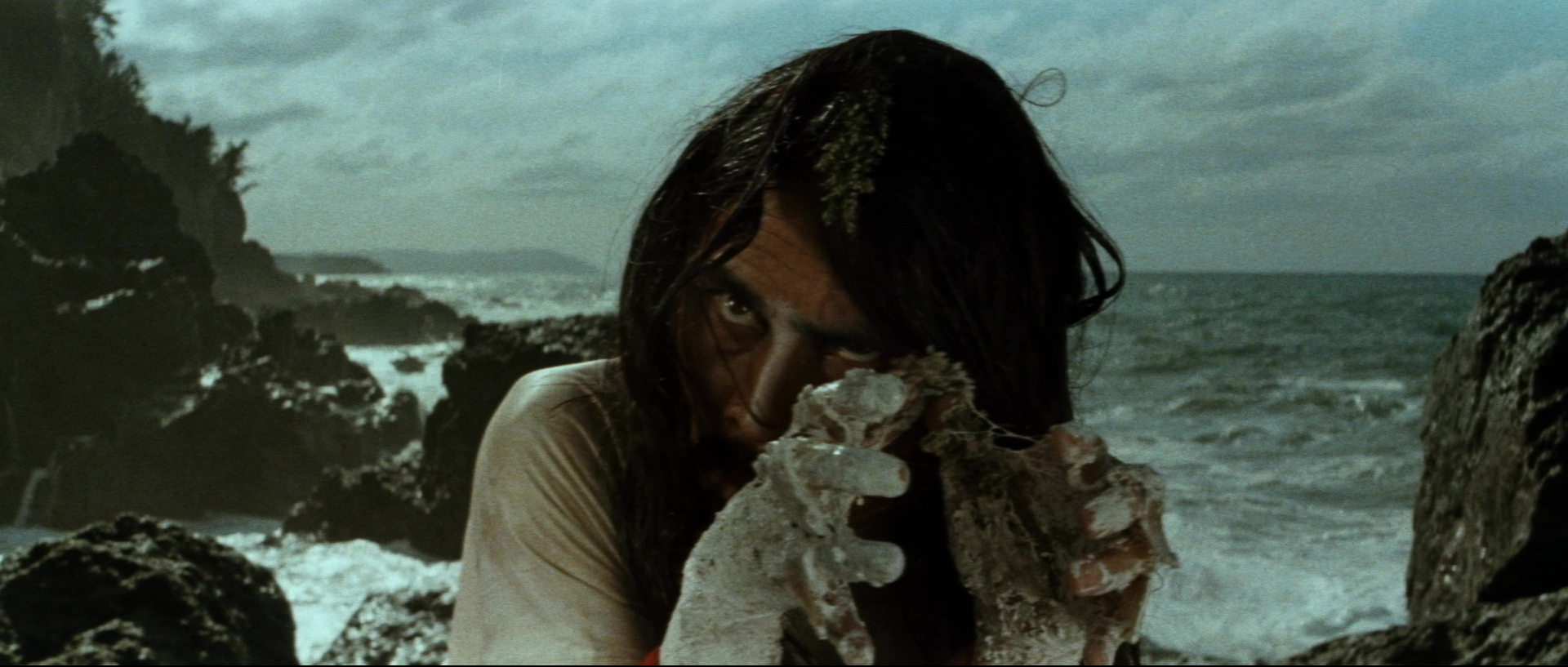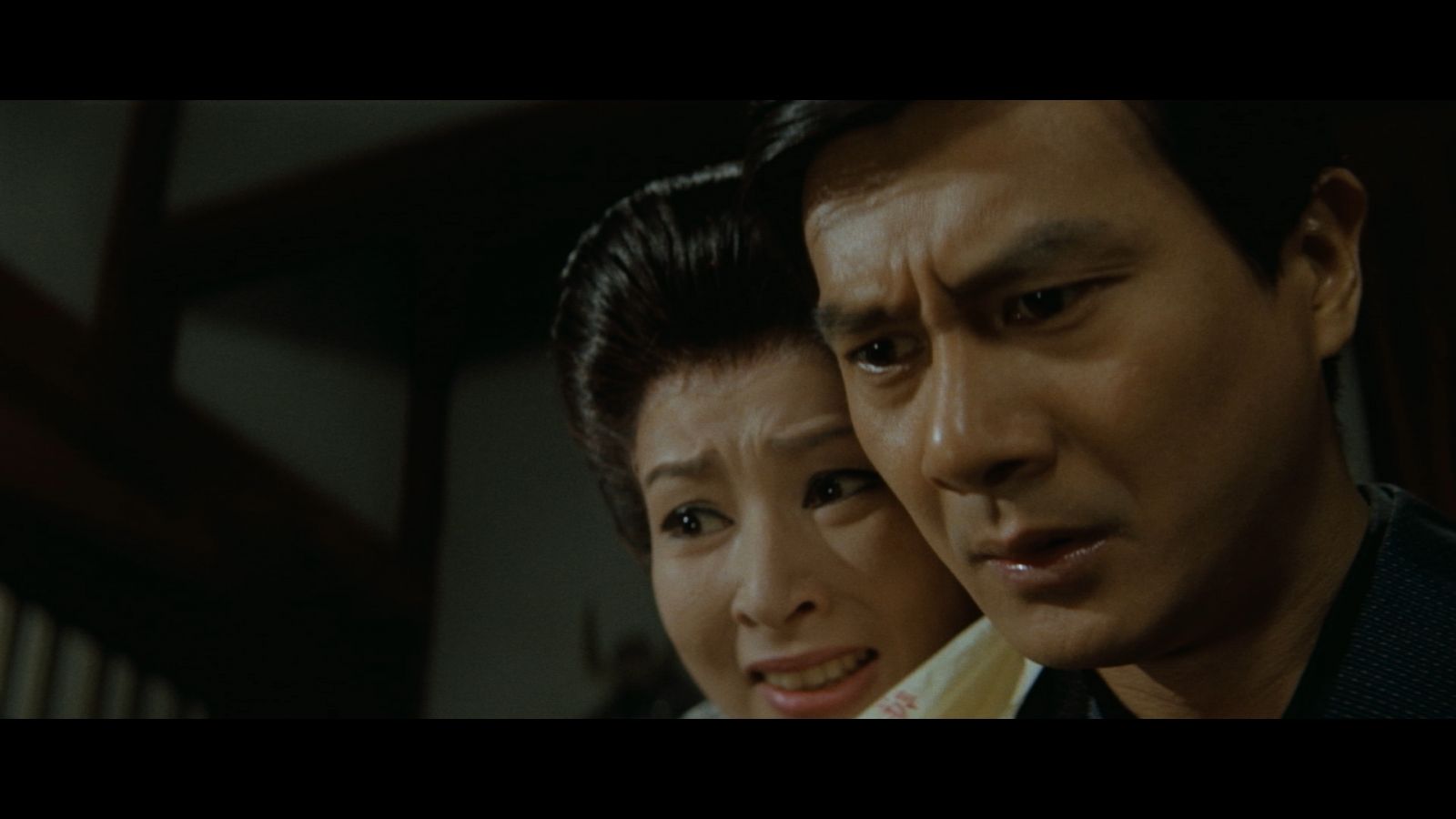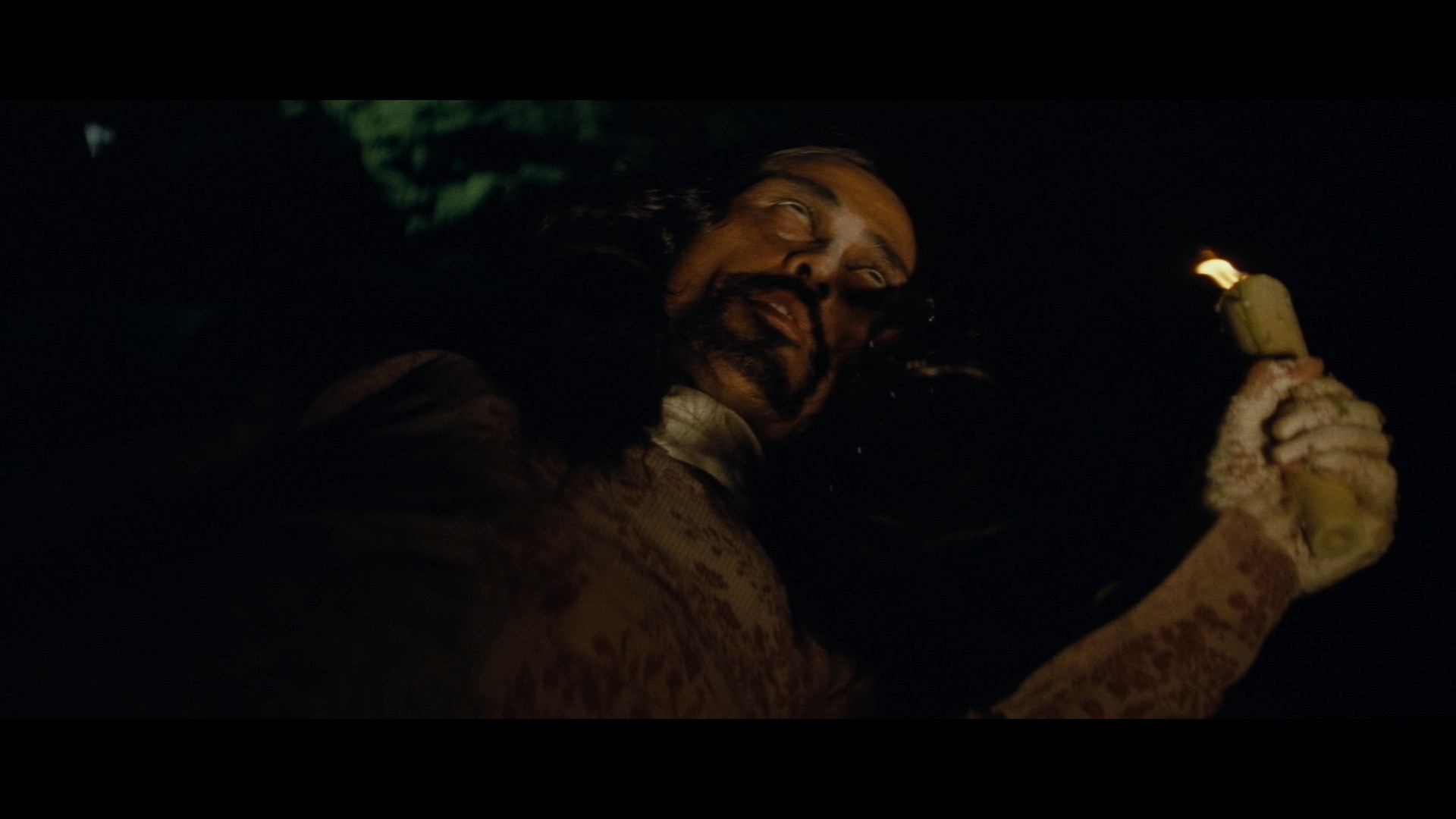
On first inspection, Horrors of Malformed Men seems like a Japanese adaptation of HG Wells’ famous novella The Island of Dr. Moreau. But further research reveals another literary icon influencing director Teruo Ishii’s 1969 surrealist movie – prominent Japanese author Edogawa Rampo, a prolific writer that bridged the gap between Edgar Allan Poe and Sir Arthur Conan Doyle. While Ishii’s screenplay alters a lot of Rampo’s short story “Panorama Island” (sometimes written in varying forms due to translation), various elements from Rampo’s other works make it into this luridly odd tale of a man who engineers disfigured people on an island as his life’s work to get back at those who wronged him.
Ishii’s plot is strange and disjointed right from the start, following Hirosuke (Teruo Yoshida) as he escapes from asylum, meets a woman who sings a song he remembers from childhood, and then decides to set out in search of his origins. Horrors of Malformed Men moves… fluidly, I guess one would call it – through the early plotting, with Ishii rarely stopping to explain some of the odd character motivations Hirosuke seems to have.

It only gets weirder from here, though, as the film sees Hirosuke taking the place of a dead man who appears to be his identical twin. From there, he eventually discovers an island of intentionally disfigured people perpetrated by his father, who is basically spiraling into a lifelong dream of fucking up everyone who might have done him wrong. This includes multiple twin siblings, incest, a man who hides in chairs to feel people having sex on top of him, and more.
Horrors of Malformed Men is surreal and often nonsensical in a style that adheres closely to the ero guro format of Japanese storytelling, but Ishii surprisingly stumbles upon some effective themes toward the end of the movie. While a lot of the film’s exposition is delivered in explicit detail by characters (one of whom appears randomly during the finale despite no presence throughout the plot), the impact of some of the atrocities is still emotional. And even if the main villain gets an apology (wait what?) at the end, Ishii’s volatile movie is quite the trip that still manages to surprise with its grotesqueness nearly fifty years later.

Arrow Video has done a great job on this Blu-ray release, with a new 2k scan of the film that looks tremendous – there are a few scratches and damage throughout, but overall it is crisp and clear with great definition. Audio is presented in mono and does the job well, with no hiss effects present. English subtitles are obviously included, and are automatically turned on.
Two audio commentaries are included on this disc, one from film historian Tom Mes and the other from film historian Mark Schilling. Both are very knowledgeable about Japanese classic film and Toei productions, definitely worth a watch. The other new extra is an interview with screenwriter Masahiro Kakefuda, who discusses his works at Toei, not explicitly Horrors of Malformed Men but all of his erotic and lurid productions.

The rest of the features are ported over from the Synapse release including interviews with Shinya Tsukamoto and Minoru Kawasaki, and Teruo Ishii and Mark Schilling visiting Far East Film Festival.
The big addition to this release, though, is the insert booklet featuring three different essays and full color artwork. It’s a great read, and certainly recommended. Reversible cover artwork is also included.
Arrow Video has released a great Blu-ray for Horrors of Malformed Men, one cult film fans should definitely check out.

